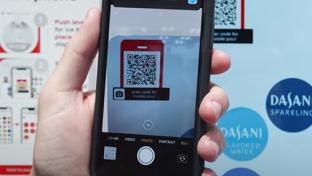Coca-Cola’s Increased RGM Focus Expected to Help Navigate Price Increases
Coca-Cola is seeing the fruits of its digital transformation efforts in connecting with consumers around the globe, as the beverage company expects prioritization of revenue growth management (RGM) to help manage input inflation.
The No. 12 consumer company, which reported 6% organic revenue growth in the first quarter, is seeing success with a range of engagement technologies, including recording incremental growth in China through digital campaigns harnessing consumer data to drive traffic, James Quincey, chairman and CEO, said in an earnings call.
A social media chatbot in South Africa is helping drive away-from-home transactions, while there’s been an uptick in monthly active consumers in Japan using its Coke On mobile app to make cashless payments at vending machines. Machine learning and artificial intelligence tools, meanwhile, continue to help it stay abreast of evolving consumer trends and identify emerging needs.
“Our dedicated digital transformation structure [is] leading to strong online-to-offline growth,” said Quincey, noting that the company is recording e-commerce share gains in North America, Japan and Great Britain, while Turkey, a developing market, more than tripled sales for the period vs. last year.
Coca-Cola is undergoing a reorganization of its platform services structure and, as part of this, the company is dedicating more resources to RGM. These efforts are contributing to share growth in at-home occasions and expanded distribution of certain products.
And as the company does expect to raise prices to keep in line with input inflation — including high fructose corn syrup, metal and packaging materials — RGM will play a strong role in helping execute pricing strategies in locally relevant ways, especially as Coca-Cola uses 2020’s lessons to become more data-driven in promotions.
Its pursuit of productivity across its supply chain — particularly with its bottling partners, of which it’s seen increased success in the last six to 12 months — will also continue to see momentum into 2022. In addition to working with its bottling partners to optimize cooler placement for improved customer service, productivity and innovation, Coca-Cola is also developing enterprise-wide initiatives to identify more efficiency and increase data transparency.
“We're operating in a networked way, leveraging our platform services organization to scale our collected data, marketing, digital and supply chain capabilities,” said Quincey. “Our system continues to evolve, as shown by the pending combination of Coca Cola, European partners, and Coca Cola Amatil.”
All of these reorg efforts are bearing fruits throughout operations, including consumer engagement and with its bottlers, to make faster and more efficient decisions.
“Ultimately all those insights and all those efficiencies help us manage the inflationary pressures out there, whether we use the insights to engage more consumers or use the insight to drive the RGM thinking, an implementation or to identify efficiencies,” said Quincey.
Keeping in line with all of these efficiency strategies, Coca-Cola also announced it will list Coca-Cola Beverages Africa as an independent African bottler through an initial public offering.
“If one thinks about the future potential of the African market and the African continent, and how much long growth there is there … we've ultimately contemplated it would be right for the development of the business in Africa to have an African-headquartered African bottler that is operating on the continent,” Quincey said.







